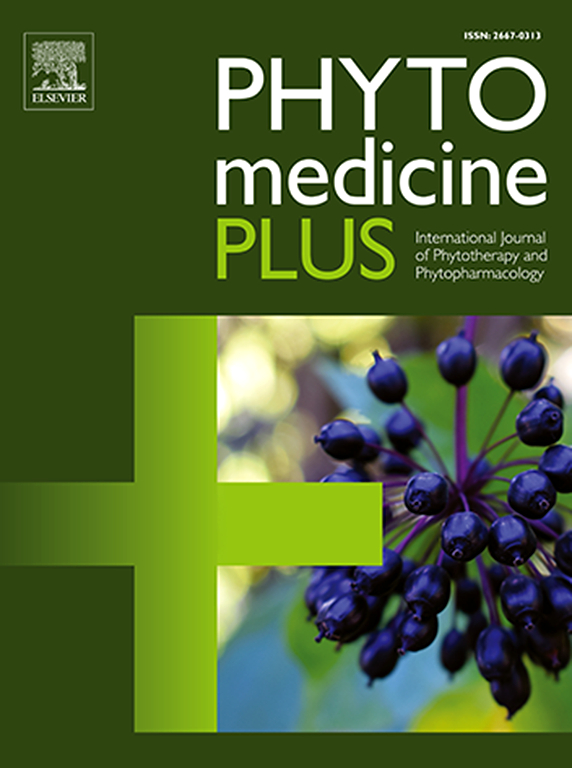磷脂体:一个有前途的纳米载体系统,提高生物利用度和草药产品的治疗效果
Q3 Pharmacology, Toxicology and Pharmaceutics
引用次数: 0
摘要
草药产品在许多健康状况中显示出各种治疗潜力。然而,它们的溶解度、吸收、生物利用度和稳定性方面的限制阻碍了临床转化。在应对这些挑战的各种策略中,利用磷脂体作为纳米载体系统是提高植物成分生物利用度和有效性的一种有希望的方法。摘要本文综述了磷脂小体作为一种新型纳米递送系统的发展、制备及其优点,重点介绍了磷脂小体如何克服植物成分的药代动力学限制。方法利用PubMed、Web of Science、Scopus、b谷歌Scholar等数据库进行科学文献检索。关键词如“植物体”、“herbasome”、“草药给药”和“磷脂复合物”被用来识别合适的科学文章。结果:在生物利用度、治疗效果、稳定性和草药产品的靶向分配方面,质体递送系统已经证明了显著的改善。与脂质体等其他递送系统相比,磷脂质体具有优越的药代动力学特征和分配效率。它们有望提高生物利用度,并实现多种给药途径,包括口服、外用和鼻内给药。它们在炎症性疾病、神经系统疾病、癌症、代谢综合征和肝脏疾病中也有许多治疗应用。结论植物体传递系统有效地解决了草药产品的药代动力学挑战,提高了生物利用度、稳定性和治疗效果。本文章由计算机程序翻译,如有差异,请以英文原文为准。

Phytosomes: A promising nanocarrier system for enhanced bioavailability and therapeutic efficacy of herbal products
Background
Herbal products have revealed a variety of therapeutic potential in numerous health conditions. However, limitations regarding their solubility, absorption, bioavailability, and stability have hindered clinical translations. Among various strategies to combat these challenges, using phytosomes as a nanocarrier system has presented a promising approach to enhance the bioavailability and effectiveness of phytoconstituents.
Purpose
This study comprehensively reviews the development, preparation, and advantages of phytosomes as a novel nanodelivery system, focusing on overcoming the pharmacokinetic limitations of phytoconstituents.
Methods
A scientific literature search was conducted using databases including PubMed, Web of Science, Scopus, and Google Scholar. Keywords such as “phytosome,” “herbasome,” “herbal drug delivery,” and “phospholipid complex” were employed to identify appropriate scientific articles.
Results
Phytosomal delivery systems have demonstrated significant improvements in bioavailability, therapeutic outcomes, stability, and targeted distribution of herbal products. Compared to other delivery systems like liposomes, phytosomes exhibit superior pharmacokinetic profiles and distribution efficiency. They show promise in enhancing bioavailability and enabling diverse routes of administration, including oral, topical, and intranasal. They also have numerous therapeutic applications in inflammatory diseases, neurological disorders, cancers, metabolic syndrome, and liver diseases.
Conclusion
Phytosomal delivery systems effectively address the pharmacokinetic challenges of herbal products, offering improved bioavailability, stability, and therapeutic outcomes.
求助全文
通过发布文献求助,成功后即可免费获取论文全文。
去求助
来源期刊

Phytomedicine Plus
Medicine-Complementary and Alternative Medicine
CiteScore
3.70
自引率
0.00%
发文量
178
审稿时长
81 days
期刊介绍:
 求助内容:
求助内容: 应助结果提醒方式:
应助结果提醒方式:


